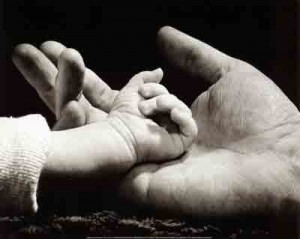 Fatherhood is likely to be a central part of the discussion when the world’s bishops gather at the Vatican this October.
Fatherhood is likely to be a central part of the discussion when the world’s bishops gather at the Vatican this October.
Pope Francis has called an extraordinary assembly of the Synod of Bishops to consider the “Pastoral challenges for the family in the context of evangelization.” He also has asked bishops to meet in 2015 to seek guidelines in the pastoral care of the person and the family.
Preparations for these two important meetings began in the fall of 2013, when the Vatican issued a preparatory document outlining questions and concerns, and the Pontifical Council for the Family met to discuss those concerns. Two American lay experts who serve that council discussed with Fathers for Good the issues of fatherhood that are likely to be examined by the bishops this year – Timothy T. O’Donnell, president of Christendom College in Virginia, and John S. Grabowski, associate professor and director of Moral Theology/Ethics in the School of Theology and Religious Studies of The Catholic University of America.
About the Pontifical Council for the Family meeting, which took place in October, O’Donnell said, “One of the things that came up was the crisis of paternity as a very serious consideration. Pope John Paul II, in Familiaris Consortio (the 1981 apostolic exhortation on the Christian family in the modern world) spoke about the irreplaceable role of the father in the home and how important that is. There was a real sense as we talked that that role needs to be articulated and developed in a more thorough way.”
Speaking about recent secular studies that highlight common dangers to the marriage relationship, Grabowski noted that a group of American trial lawyers recently estimated that 57% of the divorce cases they handle involve one party having some kind of an addiction to pornography. And statistics show that couples who cohabit before marriage are 46% more likely to divorce, he said.
“Are we articulating that in our marriage preparation, explaining that, showing people why that’s the case?” Grabowski asked.
O’Donnell added that recent research has shown that kids growing up without a father at home are more likely to have psychological issues and be involved in violent crime.
The two men cited data suggesting an increasing marginalization of fathers because of situations like no-fault divorce and the increasing use of anonymous sperm donation by women who want to have a child without getting married.
All of which argues well for the fact that adherence to Catholic moral teaching on family matters helps to provide a peaceful and secure life for mothers, fathers and children. Yet not enough people are hearing the message or understanding it.
“We have beautiful and profound teaching. The problem is that it does not seem to have had the impact and influence it should in the lives of so many people,” said Bishop Kevin C. Rhoades of Fort Wayne-South Bend, Ind., a member of the U.S. Conference of Catholic Bishops Committee on Marriage. “How do we translate the truth into practice? How can we help people to live the teachings?”
Bishop Rhoades believes Christian formation needs to be more systematic and begin in catechetical programs for children “and then especially be extensive in our catechesis of adolescents and young adults.” He noted, “These are crucial times when the vocation to marriage is being discerned.”
“Too often the Church’s teaching is seen as a set of rules, without understanding that the teaching and laws are for our own true happiness and our own good,” he said. “The teaching needs to be presented in a positive way. I think Pope John Paul’s theology of the body should be used extensively in catechesis on these matters. I also think that parents should be given catechesis as well.”
As for the crisis in fatherhood, O’Donnell would like to see Pope Francis take a page from his predecessor, Blessed Pope John Paul II. The late pope, whom Francis will canonize in April, issued an apostolic letter on the dignity and vocation of women, Mulieris Dignitatem, in 1988. “I think we’re going to need something for men because I think there’s so much confusion right now concerning the role of male identity and what does it mean to be a father, what does it mean to be a husband,” O’Donnell said. “And so many times religion or religious formation is simply left up to the woman. … The husband and wife need to work together, to support one another, complement one another, that the husband should really radiate Christ to his family, just as the woman should symbolize the Church in her fecundity and in her affectionate love and in her nurturing love. But you need both.”
This is Part 2 in a Series on the Synod on the Family. View the previous installment of this series: Part 1.



